UPSC Exam > UPSC Notes > Medical Science Optional Notes for UPSC > Carcinoma Esophagus
Carcinoma Esophagus | Medical Science Optional Notes for UPSC PDF Download
Common causes of cancers in INDIA

Etiology
- Squamous Cell Carcinoma:
- Globally prevalent and the most common type.
- Affects the upper two-thirds of the esophagus.
- Associated with risk factors such as smoking and alcohol consumption.
- Adenocarcinoma:
- Predominantly observed in Western populations.
- Primarily involves the lower one-third of the esophagus.
- Linked to factors like gastroesophageal reflux disease (GERD) and Barrett's esophagus.
- Other contributing factors include obesity, nutritional deficiencies, and fungal contamination.
Clinical features

Question for Carcinoma EsophagusTry yourself: What are the common risk factors associated with Squamous Cell Carcinoma?View Solution
TNM staging scheme for esophageal cancer
- High-grade dysplasia signifies severe cellular abnormalities.
- T1: Tumor penetration into the lamina propria or submucosa.
- T2: Tumor infiltration into the muscularis propria.
- T3: Tumor infiltration beyond the muscularis propria.
- T4a: Tumor extension into nearby structures like pleura, pericardium, or diaphragm.
- T4b: Tumor invasion into adjacent structures like trachea, bone, or aorta.
- NO: No presence of lymph node metastases.
- N1: Lymph node metastases detected in 1-2 nodes.
- N2: Lymph node metastases detected in 3-6 nodes.
- N3: Lymph node metastases detected in 7 or more lymph nodes.
- M0: No distant metastases observed.
- M1: Presence of distant metastases excluding lymph nodes.
- Early stage (T1/T2, NO) typically treated with surgery alone.
- Advanced lesions (T3/T4, N1) often require a multimodal approach combining various treatments.
- Early stage (T1/T2, NO) usually addressed primarily through surgery.
- Advanced lesions (T3/T4, N1) usually demand a combination of treatments.
Investigations
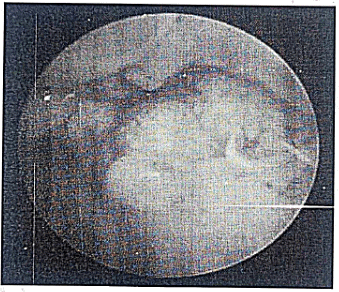
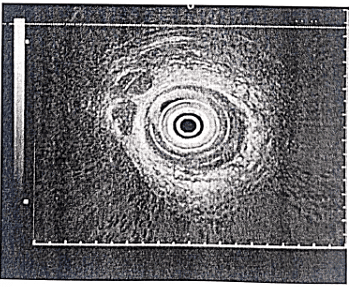
- Upper Gl Endoscopy
- Bronchoscopy
- Laparoscopy
- CT scan
- Endoscopic Ultrasound (EUS)
- PET CT
Question for Carcinoma EsophagusTry yourself: What is the primary method for potentially curing the condition?View Solution
General Principles
- Around two-thirds of patients have a form of the condition that cannot be cured and necessitates palliative care.
- Surgery is the primary method for a potential cure.
Radical treatment options:
- Radical esophagectomy coupled with Lymphadenectomy
Minimal treatment options:
- Endoscopic mucosal resection
- Photodynamic therapy
Management Algorithm
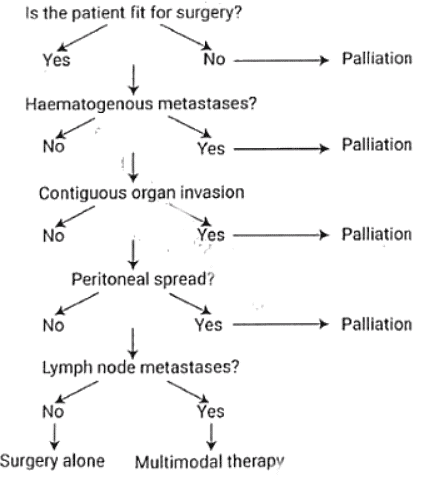
Curative treatment
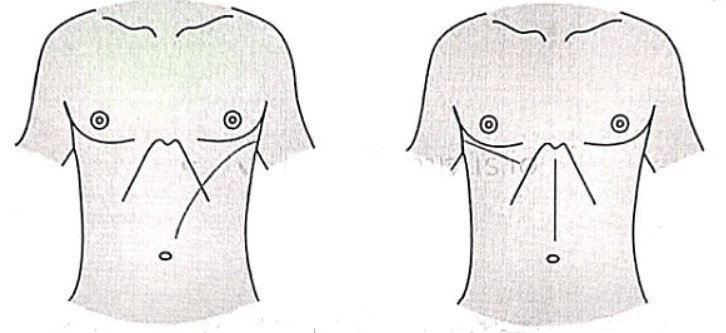
Surgical
- One phase
- Two phase (Lewis Tanner)
- Three phase (Mckeown)
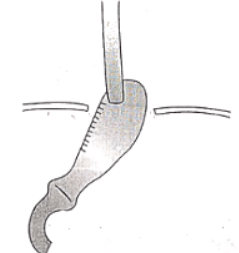
Complications
Early
- Anastomotic leakage
- Chylothorax
- RLN injury
Late
- Gastroesophageal reflux
- Stricture
Palliative treatment
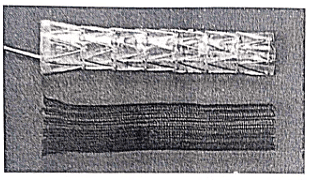
- Insertion of a breathing tube for ventilation.
- Endoscopic procedures, including:
- Laser treatment
- Bipolar diathermy
- Argon beam plasma coagulation
- Injection of alcohol
- Brachytherapy, a form of radiation therapy.
- Chemotherapy utilizing platinum-based medications.
Previous Question
Q: List the most five commonly found cancers in India. Enumerate the clinical features of carcinoma of upper third of esophagus. How would you manage a case of carcinoma of upper third of esophagus? (2014)
Question for Carcinoma EsophagusTry yourself: What is the most common type of esophageal cancer globally?View Solution
The document Carcinoma Esophagus | Medical Science Optional Notes for UPSC is a part of the UPSC Course Medical Science Optional Notes for UPSC.
All you need of UPSC at this link: UPSC
|
7 videos|236 docs
|
FAQs on Carcinoma Esophagus - Medical Science Optional Notes for UPSC
| 1. What is the etiology of esophageal cancer? |  |
Ans. The etiology of esophageal cancer can vary, but common risk factors include long-term tobacco and alcohol use, gastroesophageal reflux disease (GERD), obesity, a diet low in fruits and vegetables, and certain genetic conditions.
| 2. What is the TNM staging scheme for esophageal cancer? |  |
Ans. The TNM staging scheme for esophageal cancer is a system used to classify the extent of the disease. It includes three components: T (tumor), N (lymph nodes), and M (metastasis). The T stage refers to the size and invasion of the tumor, the N stage indicates the involvement of nearby lymph nodes, and the M stage identifies if the cancer has spread to distant organs.
| 3. How does the TNM staging scheme help in the management of esophageal cancer? |  |
Ans. The TNM staging scheme is crucial in determining the appropriate management of esophageal cancer. It helps in assessing the prognosis, guiding treatment decisions, and comparing outcomes across different cases. The stage of the cancer influences the choice of surgery, radiation therapy, chemotherapy, or a combination of these modalities.
| 4. What is UPSC in relation to esophageal cancer? |  |
Ans. UPSC stands for undifferentiated pleomorphic sarcoma of the colon. It is a rare type of cancer that primarily affects the colon. It is not directly related to esophageal cancer, which primarily involves the esophagus, but both are types of cancer that can develop in the gastrointestinal system.
| 5. What are some frequently asked questions about esophageal cancer? |  |
Ans. Some frequently asked questions about esophageal cancer include: What are the symptoms of esophageal cancer? How is esophageal cancer diagnosed? What are the treatment options for esophageal cancer? What is the survival rate for esophageal cancer? Can esophageal cancer be prevented?
Related Searches
















